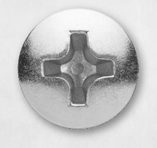Proverbs 9:10-12 |
The Fear of the Lord
|
|
Proverbs 9:10-12:
The fear of the Lord is the beginning of wisdom, and the knowledge of the Holy One is insight. For by me your days will be multiplied, and years will be added to your life. If you are wise, you are wise for yourself; if you scoff, you alone will bear it. |
 Duncan Edward Pile Duncan Edward Pile
The fear of the Lord is a basic acknowledgement of the difference between God and us – he is Almighty, while we are limited in power; he is immortal, but our flesh will die; he is all-knowing, while human perspective is limited. In other words, God is God, and we are not.
This fundamental acknowledgement of the way things are is the beginning of our response to God, who in terms of ability is infinitely above us. The fact of the matter is that God so exceeds us in power, that if he chose to make our lives unbearable, we would have no ability to deny him, or even voice to complain. If God were a cruel, self-important despot, the lives of his creations would be unrelentingly miserable. It is healthy to dwell on this, from time to time, as a point of context. -Duncan Edward Pile; Seekers Corner; The Fear of the Lord is the Beginning of Wisdom; 12.21.21 |
Proverbs 10:27, “The fear of the Lord prolongs days: but the years of the wicked shall be shortened.”
Proverbs 14:26, “In the fear of the Lord is strong confidence: and his children shall have a place of refuge.”
Proverbs 14:26, “In the fear of the Lord is strong confidence: and his children shall have a place of refuge.”

The goodness of God is not amenable to the riches of men. The psalmist says: “You, O God, provided from Your goodness for the poor.” (Psalm 68:10). A man can be as poor as a church rat, nevertheless, he is content because he appreciates the goodness of God.
“The secret of the Lord is with those who fear Him, and He will show them His covenant.” (Psalm 23:14).
Thus says the Lord: “Unto you who fear My name the Sun of Righteousness shall arise with healing in His wings.” (Malachi 4:2).
“The goodness of God is laid up for those who fear God.” (Psalm 31:19). Moses feared the Lord. He yearned for God and desired to see the glory of God. In reply, God said to him: “I will make all My goodness pass before you.” (Exodus 33:19). -The Vanguard; Christians do not love God; 4.24.22
“The secret of the Lord is with those who fear Him, and He will show them His covenant.” (Psalm 23:14).
Thus says the Lord: “Unto you who fear My name the Sun of Righteousness shall arise with healing in His wings.” (Malachi 4:2).
“The goodness of God is laid up for those who fear God.” (Psalm 31:19). Moses feared the Lord. He yearned for God and desired to see the glory of God. In reply, God said to him: “I will make all My goodness pass before you.” (Exodus 33:19). -The Vanguard; Christians do not love God; 4.24.22

In the Bible, the word translated “fear” can mean several things. It can refer to the terror one feels in a frightening situation (Deuteronomy 2:25). It can mean “respect” in the way a servant fears his master and serves him faithfully (Joshua 24:14). Fear can also denote the reverence or awe a person feels in the presence of greatness (Isaiah 6:5). The fear of the Lord is a combination of all of these.
Fear of the Lord can be defined as “the continual awareness that our loving heavenly Father is watching and evaluating everything we think, say, and do” (Matthew 12:36; Psalm 139:2; Jeremiah 12:3). As Jesus told each of the seven churches in Revelation 1—2, “I know your works.” Nothing escapes His attention.
In order to develop the fear of the Lord, we must recognize God for who He is. We must glimpse with our spirits the power, might, beauty, and brilliance of the Lord God Almighty (Revelation 11:17; Hosea 12:5; Isaiah 6:1–5). Those who fear the Lord have a continual awareness of Him, a deep reverence for Him, and sincere commitment to obey Him. -Got Questions; How is the fear of the Lord the beginning of wisdom?
Fear of the Lord can be defined as “the continual awareness that our loving heavenly Father is watching and evaluating everything we think, say, and do” (Matthew 12:36; Psalm 139:2; Jeremiah 12:3). As Jesus told each of the seven churches in Revelation 1—2, “I know your works.” Nothing escapes His attention.
In order to develop the fear of the Lord, we must recognize God for who He is. We must glimpse with our spirits the power, might, beauty, and brilliance of the Lord God Almighty (Revelation 11:17; Hosea 12:5; Isaiah 6:1–5). Those who fear the Lord have a continual awareness of Him, a deep reverence for Him, and sincere commitment to obey Him. -Got Questions; How is the fear of the Lord the beginning of wisdom?
 Jerry Robinson
Jerry Robinson
True spiritual knowledge is only granted to those who “fear” the Lord.
This is confirmed in Proverbs 1:7:
“The fear of the LORD is the beginning of knowledge; Fools despise wisdom and instruction”
Those who seek spiritual knowledge are the opposite of “fools,” who despise “instruction.” We do well to desire God’s instruction in our lives.
“And now, Israel, what does the Lord your God require of you, but to fear the Lord your God, to walk in His ways and to love Him, to serve the Lord your God with all your heart and with all your soul, and to keep the commandments of the Lord and His statutes which I command you today for your good?” Deuteronomy 10:12-13.
Ecclesiastes 12:13 The end of the matter; all has been heard. Fear God and keep his commandments, for this is the whole duty of man.
Psalm 111:10:
“The fear of the LORD is the beginning of wisdom; A good understanding have all those who do His commandments; His praise endures forever.”
When we “fear” God, His divine and unfathomable wisdom becomes available to us.
In Job 28:28, we read:
“‘Behold, the fear of the Lord, that is wisdom; And to depart from evil is understanding.'”
“He will be the sure foundation for your times, a rich store of salvation and wisdom and knowledge; the fear of the LORD is the key to this treasure.” (Isa. 33:6)
In Ex. 20:20, Moses attempts to calm the people after they experience the mighty presence of God at Mount Sinai. Moses reassures them saying: “Don’t be afraid… for God has come in this way to test you, and so that your fear of him will keep you from sinning!”
The “fear of the Lord” plays a unique role in the Christ follower’s ongoing battle against their sin nature.
How do you receive God’s rich mercy?
According to Luke 1:50, God’s mercy is reserved for “those who fear him from generation to generation.”
The fear of the Lord can prolong life…
“The fear of the LORD prolongs life, But the years of the wicked will be shortened.”
It preserves and protects our life…
“The fear of the LORD is a fountain of life, turning a person from the snares of death.”
Finally, note that Proverbs also describes something else as a “fountain of life”…
“The teaching of the wise is a fountain of life, To turn aside from the snares of death.”
The door of divine wisdom stands wide open to those who “fear God and keep his commandments.”
In Psalm 25, there is an amazing promise made to those who “fear” the Lord.
“The friendship of the LORD is for those who fear him, and he makes known to them his covenant.”
The promise in this verse is two-fold.
First, the fear the Lord is crucial to obtaining friendship with God. If friendship with the God of eternity were not enough, this verse also promises that those who fear the Lord will be made to know God’s covenant.
The blood covenant that God has established with mankind through His only Son, Jesus Christ, provides salvation to all who will partake.
-Jerry Robinson; True Riches Radio; Seven Amazing Benefits For Those Who “Fear” the Lord
This is confirmed in Proverbs 1:7:
“The fear of the LORD is the beginning of knowledge; Fools despise wisdom and instruction”
Those who seek spiritual knowledge are the opposite of “fools,” who despise “instruction.” We do well to desire God’s instruction in our lives.
“And now, Israel, what does the Lord your God require of you, but to fear the Lord your God, to walk in His ways and to love Him, to serve the Lord your God with all your heart and with all your soul, and to keep the commandments of the Lord and His statutes which I command you today for your good?” Deuteronomy 10:12-13.
Ecclesiastes 12:13 The end of the matter; all has been heard. Fear God and keep his commandments, for this is the whole duty of man.
Psalm 111:10:
“The fear of the LORD is the beginning of wisdom; A good understanding have all those who do His commandments; His praise endures forever.”
When we “fear” God, His divine and unfathomable wisdom becomes available to us.
In Job 28:28, we read:
“‘Behold, the fear of the Lord, that is wisdom; And to depart from evil is understanding.'”
“He will be the sure foundation for your times, a rich store of salvation and wisdom and knowledge; the fear of the LORD is the key to this treasure.” (Isa. 33:6)
In Ex. 20:20, Moses attempts to calm the people after they experience the mighty presence of God at Mount Sinai. Moses reassures them saying: “Don’t be afraid… for God has come in this way to test you, and so that your fear of him will keep you from sinning!”
The “fear of the Lord” plays a unique role in the Christ follower’s ongoing battle against their sin nature.
How do you receive God’s rich mercy?
According to Luke 1:50, God’s mercy is reserved for “those who fear him from generation to generation.”
The fear of the Lord can prolong life…
“The fear of the LORD prolongs life, But the years of the wicked will be shortened.”
It preserves and protects our life…
“The fear of the LORD is a fountain of life, turning a person from the snares of death.”
Finally, note that Proverbs also describes something else as a “fountain of life”…
“The teaching of the wise is a fountain of life, To turn aside from the snares of death.”
The door of divine wisdom stands wide open to those who “fear God and keep his commandments.”
In Psalm 25, there is an amazing promise made to those who “fear” the Lord.
“The friendship of the LORD is for those who fear him, and he makes known to them his covenant.”
The promise in this verse is two-fold.
First, the fear the Lord is crucial to obtaining friendship with God. If friendship with the God of eternity were not enough, this verse also promises that those who fear the Lord will be made to know God’s covenant.
The blood covenant that God has established with mankind through His only Son, Jesus Christ, provides salvation to all who will partake.
-Jerry Robinson; True Riches Radio; Seven Amazing Benefits For Those Who “Fear” the Lord

In Hebrew, yirah (Jon 1:16, Ps 90:11), yare (above, Mal 3:16) and pachad (Job 3:25a, Ps 119:120) mean reverent fear, terror, or dread, normally translated simply fear. There are other words in Hebrew for mere respect, reverence, or honor, such as kabad (Ex 20:12). In Greek fear/terror is phobo (Mat 28:4,1 Pet 2:17c), where reverence or honor is timao (1 Pet 2:17a/d).
With this distinction in both Hebrew and Greek, some still assert that "fear merely means reverence." As if God through His Spirit could not select the right word hundreds of times! Some would prefer to believe this than to understand that God really ought to be feared.
Why is it we will not accept the fear of God? Why do we try to "explain away" the fear of God in Scripture? What is it in our unconscious minds that creeps up when the Spirit leads us into the revelation of the fear of God?
Consider The Wizard Of Oz
The needy pilgrims are encouraged to follow a "yellow brick road", or is it a gold street (Rev 21:21)? In any case, it is a narrow path (Mt 7:14) with distractions aplenty, which finally leads to an Emerald City on a hill, complete with a gate keeper (popular Christian myth). All this to see the great and fearful Oz. Oz, of course, turns out to be a fake. The only real power is wielded by the witches, and once the endearing old Oz is dispatched in a balloon, the real battle begins between the good witches and bad witches. Hmmm...
Is The Wizard of Oz a harmless children's story, or a satire of Christianity? (Job 1:1) Consider the mockery of the praise songs, even the "needs" of the pilgrims (Mr 12:30). Even if Christians have lacked discernment, the world hasn't: Elton John sings, "Good-bye yellow brick road, where the dogs of society howl."; America sings, "Oz never did give nothin' to the Tin-man; that he didn't, didn't already have."
Small wonder we try to "explain away" the fear of God when we have such lies rattling around in our heads! Something deep within us says, "It's all an illusion." "Surely, behind the curtain over there, there must be a cute little man pulling levers to make all the smoke and flames." "If we really knew, we'd see that God is just a gentle con-man, who means well, but is really harmless."
Do we know the revealed God of Scripture, or do we believe in a God who is kind of like Oz? We must realize how effective Satan is at lying, and repent, or our knowledge of God will remain flawed. Will we fear God? We must take these thoughts captive with the weapons given us.
--Acts 17-11 Bible Study; The Fear of God
With this distinction in both Hebrew and Greek, some still assert that "fear merely means reverence." As if God through His Spirit could not select the right word hundreds of times! Some would prefer to believe this than to understand that God really ought to be feared.
Why is it we will not accept the fear of God? Why do we try to "explain away" the fear of God in Scripture? What is it in our unconscious minds that creeps up when the Spirit leads us into the revelation of the fear of God?
Consider The Wizard Of Oz
The needy pilgrims are encouraged to follow a "yellow brick road", or is it a gold street (Rev 21:21)? In any case, it is a narrow path (Mt 7:14) with distractions aplenty, which finally leads to an Emerald City on a hill, complete with a gate keeper (popular Christian myth). All this to see the great and fearful Oz. Oz, of course, turns out to be a fake. The only real power is wielded by the witches, and once the endearing old Oz is dispatched in a balloon, the real battle begins between the good witches and bad witches. Hmmm...
Is The Wizard of Oz a harmless children's story, or a satire of Christianity? (Job 1:1) Consider the mockery of the praise songs, even the "needs" of the pilgrims (Mr 12:30). Even if Christians have lacked discernment, the world hasn't: Elton John sings, "Good-bye yellow brick road, where the dogs of society howl."; America sings, "Oz never did give nothin' to the Tin-man; that he didn't, didn't already have."
Small wonder we try to "explain away" the fear of God when we have such lies rattling around in our heads! Something deep within us says, "It's all an illusion." "Surely, behind the curtain over there, there must be a cute little man pulling levers to make all the smoke and flames." "If we really knew, we'd see that God is just a gentle con-man, who means well, but is really harmless."
Do we know the revealed God of Scripture, or do we believe in a God who is kind of like Oz? We must realize how effective Satan is at lying, and repent, or our knowledge of God will remain flawed. Will we fear God? We must take these thoughts captive with the weapons given us.
--Acts 17-11 Bible Study; The Fear of God

April 16, 2022:
An article at "Active Christianity" states that "When we think of Jesus’ coming to earth, we understand that it was to create an upheaval – a transition of power. “Repent, for the kingdom of heaven is at hand” was His message from the very beginning (Matthew 4:17). When Jesus was born, the land was occupied by the Roman empire. The Emmaus pilgrims who spoke to Jesus on the road after His resurrection told Him that they hoped that Jesus would be the one to redeem Israel (Luke 24:21). They were thinking of an external political upheaval, in which Israel was freed from the yoke of the Romans. It took time for the disciples to realize that it was a completely different kind of transition of power that Jesus brought about. It was the dominion of the throne of the heart that was at stake. For the life of a person proceeds from the heart (Proverbs 4:23)."
I believe this is being played out even today by people who believe, like the Emmaus pilgrims, that their assumed relationship with God is to bring about change through politics. That is not true and, in fact, think it just more likely to make things worse. Their effort will not be Biblically based even though they claim it is. It appears to be of those movements that does whatever it wants to push its own political ends and by peppering it with Bible verses it makes it a "mission from God." God really isnt impressed by how many Bible verses you can quote. True wisdom begins with the the fear of the lord which is the beginning of wisdom and where knowledge of the Holy One is understanding. (Proverbs 9:10)
An article at "Active Christianity" states that "When we think of Jesus’ coming to earth, we understand that it was to create an upheaval – a transition of power. “Repent, for the kingdom of heaven is at hand” was His message from the very beginning (Matthew 4:17). When Jesus was born, the land was occupied by the Roman empire. The Emmaus pilgrims who spoke to Jesus on the road after His resurrection told Him that they hoped that Jesus would be the one to redeem Israel (Luke 24:21). They were thinking of an external political upheaval, in which Israel was freed from the yoke of the Romans. It took time for the disciples to realize that it was a completely different kind of transition of power that Jesus brought about. It was the dominion of the throne of the heart that was at stake. For the life of a person proceeds from the heart (Proverbs 4:23)."
I believe this is being played out even today by people who believe, like the Emmaus pilgrims, that their assumed relationship with God is to bring about change through politics. That is not true and, in fact, think it just more likely to make things worse. Their effort will not be Biblically based even though they claim it is. It appears to be of those movements that does whatever it wants to push its own political ends and by peppering it with Bible verses it makes it a "mission from God." God really isnt impressed by how many Bible verses you can quote. True wisdom begins with the the fear of the lord which is the beginning of wisdom and where knowledge of the Holy One is understanding. (Proverbs 9:10)

We are given three powerful reasons to fear God first and only. We learn that all of life comes from the fear of the Lord. Wisdom, knowledge, refuge, strength, joy, refreshment all come from fearing God. G.K. Chesterton said, “We fear men so much because we fear God so little.” Who needs to fear anything a man can do to us when God can give us life itself.
Not only does He give us life, but He is the only One who is able to destroy the soul, or bring eternal death. Jesus says to us in Matthew chapter ten that we should not fear men who can only kill our bodies. Instead, we should fear the One able to destroy the soul. So, the fear of the Lord brings life, and the lack of it brings eternal death.
Lastly, be reminded that God has the final word. No matter what you are enduring, no one can tell you how something will end. We cannot tell the future. However, God is already there. He knows how it will roll, so lean on Him, trusting that He’s got your back.
If you fear the One, you no longer have to fear anything else. -Emanuel Webb Hoggard; Askeview Assembly of God
Not only does He give us life, but He is the only One who is able to destroy the soul, or bring eternal death. Jesus says to us in Matthew chapter ten that we should not fear men who can only kill our bodies. Instead, we should fear the One able to destroy the soul. So, the fear of the Lord brings life, and the lack of it brings eternal death.
Lastly, be reminded that God has the final word. No matter what you are enduring, no one can tell you how something will end. We cannot tell the future. However, God is already there. He knows how it will roll, so lean on Him, trusting that He’s got your back.
If you fear the One, you no longer have to fear anything else. -Emanuel Webb Hoggard; Askeview Assembly of God

In my book Wake Up to Wonder, I describe the overwhelming sense of awe I felt when I got close to Niagara Falls, which inspired me to worship its Creator. As I approached the falls in a boat, I experienced the raw power of six million cubic feet of water per minute cascading down around me. All of my senses were overwhelmed by wonder: seeing (a wall of white, blue, and green colors flooded my vision), hearing (a thundering sound reverberated through my body), smelling (the clean scent of water refreshed me), touching (cold sprays of water drenched my face and rain poncho), and tasting (I could taste the purity of the mist in the air). Both joy and fear welled up within me. While I loved the thrill of an adventure at the falls, I had a sense of reverence that humbled me in its presence. I knew the water could engulf me completely if I got too close. A healthy fear moved me to respect the power of the falls by keeping my distance while still enjoying their majesty. That same healthy fear – awe – moved me to praise God, whose power is much greater than even his most majestic waterfalls. -Whitney Hopler
|

True wisdom derives from viewing everything in its relation to God. To honour and love God above all things is the beginning of wisdom. To know God – the Holy One – is understanding; why?
To love and honour God above all things gives one the capacity to find or accord the correct place for all other things. In so doing we are helped to avoid idolatry: of giving anything else ultimate value or allegiance in our lives. The true nature of reality cannot be read off the surface of nature or history alone. The mystery of life and of the world is not known to us through the world alone. Here Calvin gets it right: we only truly know ourselves when we first come to know God. The fear of the Lord enables us to perceive the inner secret of reality, that God is the origin, meaning and goal of all that is, and that God’s ways therefore constitute true wisdom, the true path of life in this world. In sum, then, through the fear of the Lord and the knowledge of God one may
|
|
David Wells defines worldliness as whatever makes “sin look normal and righteousness look strange.” Our default vision is blurry, which is why Scripture says knowledge begins with fearing the Lord (Prov. 1:7). Until we understand God’s authority—he is God, we are not—we’re not seeing straight. Repentance points us to our deepest problem (sin), our right response to that problem (humility), and the only One with power to fix it (God). Without it, we’re prone to shrink our view of both the seriousness of our sin and the holiness of God. -Will Anderson; Gospel Coalition
|

Practical reasoning, according to the Bible, also has a fundamental starting point. It doesn’t just start as reason reasoning. It is also a starting point we dare not neglect. That starting point is this: “the fear of the Lord is the beginning of wisdom” (Prov. 9:10). Thus, the act of rational thinking about what concrete goods to pursue in life, how to evaluate the process of attaining those goods and why they should even be considered good, are all things that must be informed first and foremost by our understanding of and relationship to God. Any moral decision that is made apart from the “fear of the Lord” will indelibly contain an error. To not begin our practical decision making about a moral action with this fear of God is to inevitably wind up “missing the mark.” And this is all that sin is—morally irresponsible actions. -Anthony Costello
|
| — Ken & Betty Eberly, Behold Your God Ministries |

This poor man called, and the Lord heard him; He saved him out of all his troubles
The angel of the Lord encamps around those who fear Him, and He delivers them
Taste and see that the Lord is good; blessed is the one who takes refuge in Him
Fear the Lord, you His holy people, for those who fear Him lack nothing
– Psalm 34:6-9
When we look at David’s backstory, we don’t really see this full sense of respect, awe, and submission to God. There was a time when Saul sent men to apprehend and kill David at his home. David fled through a window and Michal, David’s wife, took an idol and laid it on the bed as a decoy. When Saul’s men came for him, she said he was ill so that David might get away with a good head start. Another time, David was expected to sit at Saul’s table for a feast, but he asked his friend Jonathan to lie to his father about David’s absence. Imprisoned, he faked insanity to gain release. David once fled from Saul to a city called Nob and lied to a priest named Ahimelech, saying Saul had commissioned him to carry out an urgent task. David requested provisions and a weapon. Ahimelech gave him some of the consecrated bread and the sword David had taken from Goliath. When Saul heard of the favor David had received in Nob, he commanded that eighty-four priests, including Ahimelech, be executed. Not only the priests, but also every man, woman, and child. David later acknowledged his deception was indeed costly, as he was morally responsible for the massacre at Nob.
During this time, David approached all his problems in a down-to-earth and practical way, and deception and violence became his way of dealing with his fear. It seemed acceptable and made perfect sense if it was done to preserve his life and help make him feel safe and secure. However, in Psalm 34 we see David recognizing that his biggest problem was that he feared man in these situations more than he feared God. In other psalms of David, we see him encourage us not to fret about the prosperity of the wicked, but to remember their soon and sure destruction. And he calls us to focus on all the good and victory God has in store for those who trust Him. -Zondervan
The angel of the Lord encamps around those who fear Him, and He delivers them
Taste and see that the Lord is good; blessed is the one who takes refuge in Him
Fear the Lord, you His holy people, for those who fear Him lack nothing
– Psalm 34:6-9
When we look at David’s backstory, we don’t really see this full sense of respect, awe, and submission to God. There was a time when Saul sent men to apprehend and kill David at his home. David fled through a window and Michal, David’s wife, took an idol and laid it on the bed as a decoy. When Saul’s men came for him, she said he was ill so that David might get away with a good head start. Another time, David was expected to sit at Saul’s table for a feast, but he asked his friend Jonathan to lie to his father about David’s absence. Imprisoned, he faked insanity to gain release. David once fled from Saul to a city called Nob and lied to a priest named Ahimelech, saying Saul had commissioned him to carry out an urgent task. David requested provisions and a weapon. Ahimelech gave him some of the consecrated bread and the sword David had taken from Goliath. When Saul heard of the favor David had received in Nob, he commanded that eighty-four priests, including Ahimelech, be executed. Not only the priests, but also every man, woman, and child. David later acknowledged his deception was indeed costly, as he was morally responsible for the massacre at Nob.
During this time, David approached all his problems in a down-to-earth and practical way, and deception and violence became his way of dealing with his fear. It seemed acceptable and made perfect sense if it was done to preserve his life and help make him feel safe and secure. However, in Psalm 34 we see David recognizing that his biggest problem was that he feared man in these situations more than he feared God. In other psalms of David, we see him encourage us not to fret about the prosperity of the wicked, but to remember their soon and sure destruction. And he calls us to focus on all the good and victory God has in store for those who trust Him. -Zondervan

I believe that this fear (which really means respect and obedience) for God, and a pursuit of His knowledge will lead us directly to faith and purpose. If we follow this path to fruition, mankind cannot help but end up exactly where God wants him to be; cultivating a healthy respect and awe for His creative existence. It trumps all other forms of fruitless gain. In fact, wise King Solomon goes on to list off ten things that seem like they matter on the surface, but have no lasting impact without God’s involvement. Things like work, wealth, competition, power, etc. All of these things will be here today, and eventually, gone tomorrow. At some point in the future, even your own family line may not know that you existed. Humbling, isn’t it? And also cause for sorrow, if it weren’t for God and His eternal qualities. -Jon Klaus
|

Proverbs says that the fear of the Lord is the “beginning” of wisdom — that is, it is the most essential component. If you do not fear God, you do not have wisdom. And what does it mean to fear God? It doesn’t mean running away whenever you hear His name. To fear God is to know Him as He is and respond accordingly.
So in order to be wise, we must fear God. And in order to fear God, we must know Him. And in order to know Him, we must be brought into proper relationship with Him through the Lord Jesus Christ (John 14:6-7). Then, when we are saved — when we come to understand God’s holiness and grace in salvation — the proper way to respond is with awe, reverence and worship. This is what it means to fear God. If you have come to know God rightly and worship Him as your Savior, you have already stepped onto the path of wisdom. - John MacArthur |

The fear of the LORD is the beginning of wisdom" (Prov. 9:10). If that is so, and it is, then the fear of the Lord is never to be feared. This fear is not a barrier to growth but a breakthrough to growth and eternal fulfillment. But the word fear needs clarification, doesn't it? After all, doesn't the Bible say, "Perfect love casts out fear" (1 John 4:18)? Yes. So, there must be two kinds of fear.
One kind of fear is the fear that shrinks from the Lord in dread, that cowers from Him and turns away from Him in terror, as if He were our problem. That kind of fear is pagan, not Christian. It has nothing to do with glorifying and enjoying God. It is suspicion and resentment toward God. The gospel does not create this fear in our hearts. The gospel shows us the glory of God's grace in Christ, and lifts us up, assured and fearless, to face life boldly as men and women of eternal destiny.....................Here is the other kind of fear: "The fear of the Lord [as] the beginning of wisdom" (Prov. 9:10). This is a new attitude of openness to God, created by His love. If you are in Christ, His perfect love is casting out your fear of judgment. The Bible says, "Fear has to do with punishment, and whoever fears has not been perfected in love. We love because he first loved us" (1 John 4:18-19). The punishment fell on our Substitute at the cross. We have received Him with the empty hands of faith. We are under God's love now. The gospel frees us from the fear that God will, in the end, condemn us anyway. Nothing will ever separate us from the love of God in Christ Jesus our Lord.
For I am sure that neither death nor life, nor angels nor rulers, nor things present nor things to come, nor powers, nor height nor depth, nor anything else in all creation, will be able to separate us from the love of God in Christ Jesus our Lord (Rom. 8:38–39).
We believe that, and we love Him. --Ray Ortlund; Ligoniers
One kind of fear is the fear that shrinks from the Lord in dread, that cowers from Him and turns away from Him in terror, as if He were our problem. That kind of fear is pagan, not Christian. It has nothing to do with glorifying and enjoying God. It is suspicion and resentment toward God. The gospel does not create this fear in our hearts. The gospel shows us the glory of God's grace in Christ, and lifts us up, assured and fearless, to face life boldly as men and women of eternal destiny.....................Here is the other kind of fear: "The fear of the Lord [as] the beginning of wisdom" (Prov. 9:10). This is a new attitude of openness to God, created by His love. If you are in Christ, His perfect love is casting out your fear of judgment. The Bible says, "Fear has to do with punishment, and whoever fears has not been perfected in love. We love because he first loved us" (1 John 4:18-19). The punishment fell on our Substitute at the cross. We have received Him with the empty hands of faith. We are under God's love now. The gospel frees us from the fear that God will, in the end, condemn us anyway. Nothing will ever separate us from the love of God in Christ Jesus our Lord.
For I am sure that neither death nor life, nor angels nor rulers, nor things present nor things to come, nor powers, nor height nor depth, nor anything else in all creation, will be able to separate us from the love of God in Christ Jesus our Lord (Rom. 8:38–39).
We believe that, and we love Him. --Ray Ortlund; Ligoniers

The “fear of the LORD” means giving God your Undivided Attention.Teach me your way, LORD, that I may rely on your faithfulness; give me an undivided heart, that I may fear your name. Psalm 86:11 (NIV)
According to the Psalmist, an undivided heart leads to the fear of the Lord.
Think about it this way. What you fear is what grabs your attention; for better or worse. Let’s say you are deathly afraid of sharks. If you saw a shark in the water that creature would have your utmost respect. While trying to evade it I would not take my eyes off it. It would have my undivided attention. Now, that is a negative example to make my point. God should have our unwavering attention in that He does not become a small compartment of our lives; perhaps on Sundays. No way. We give Him the attention that He is the quintessential meaning and purpose of our lives. And we put Him at the center.
We don’t try to balance God amongst all our other priorities, no He is the center and everything else can find its orbit or place around Him! He takes priority. And our families are all the healthier when we do our part to lead them into a God-centered vision of life. -Newbreak Church
According to the Psalmist, an undivided heart leads to the fear of the Lord.
Think about it this way. What you fear is what grabs your attention; for better or worse. Let’s say you are deathly afraid of sharks. If you saw a shark in the water that creature would have your utmost respect. While trying to evade it I would not take my eyes off it. It would have my undivided attention. Now, that is a negative example to make my point. God should have our unwavering attention in that He does not become a small compartment of our lives; perhaps on Sundays. No way. We give Him the attention that He is the quintessential meaning and purpose of our lives. And we put Him at the center.
We don’t try to balance God amongst all our other priorities, no He is the center and everything else can find its orbit or place around Him! He takes priority. And our families are all the healthier when we do our part to lead them into a God-centered vision of life. -Newbreak Church

The fear of the Lord is like the respect we have for our parents. We do not wish to offend them, but we also do not live in fear of them, in the sense of being frightened.
In the same way, Father Hardon notes, "The fear of the Lord is not servile but filial." In other words, it is not a fear of punishment, but a desire not to offend God that parallels our desire not to offend our parents. Even so, many people misunderstand the fear of the Lord. Recalling the verse that "The fear of the Lord is the beginning of wisdom," they think that the fear of the Lord is something that is good to have when you first start out as a Christian, but that you should grow beyond it. That is not the case; rather, the fear of the Lord is the beginning of wisdom because it is one of the foundations of our religious life, just as the desire to do what our parents wish us to do should remain with us our entire lives. -Learn Religions |

Throughout the Old Testament, God instructs his people that the only fear worth having is “fear of the LORD;” those dominated by fear of man will mistakenly put their trust in men to save them from fear, and they will be sorely disappointed.
The New Testament drives home the same theme. Every fear ultimately gains its strength from our mortality, from the fear of death, which undermines the security of every earthly good. It’s through this fear that sin holds us in bondage, and from this fear that Christ came to set us free (Heb. 2:14–15). Free from the fear of death and devil, Christ models for his followers a startlingly carefree attitude toward this world’s politics. The Jews of his time—like the subjects of oppressive rule in many eras—lived in constant fear and hatred of the tax collector, and they fiercely debated whether they ought to pay his unjust demand. When Jesus was asked about the subject, he announced that sons of the kingdom are “free” from this duty, but then he tells his followers to pay taxes anyway—and just to prove they can always trust God to provide, he pulls the coin from a fish’s mouth (Matt. 17:25–27)! -Brad Littlejohn; Gospel Coalition |

“The fear of the LORD” was one of the first concepts introduced in Proverbs (1:7). There it was stated as “the beginning of knowledge,” here it is “the beginning of wisdom.”
“The fear of the LORD” is a powerful concept and is foundational to both good theology and a meaningful daily life. If we can get this straight in our thinking and actions, it will empower us to a different way of life. “The fear the LORD” is generally understood as not being afraid of God, although a bit of that is also appropriate! Instead it is best understood as an attitude of reverence. At its most basic element, “the fear of the LORD” is the ability to see and appreciate God as He really is – all His moral attributes (love, mercy, grace, forgiveness, patience, justice, holiness and righteousness) and His non-moral attributes (the “omnis” and immutability). As just, holy and righteous, He won’t let us get away with stuff – God doesn’t enable! But it is all based in His love – tough love! – for us. Seeing God as He really is, helps us recognize how awesomely wonderful and great He really is. That will begin to impact how I live. Typical of the parallelism of Hebrew poetry, this verse parallels “the fear of the LORD” and “knowledge of the Holy One,” as well as “wisdom” and “understanding.” “Knowledge of the Holy One” is not as prominent a phrase in Proverbs, but carries the same idea – seeing and understanding God as He really, will make a difference in our lives! -Helping Up Mission |

Solomon had been endowed with great wisdom that surpassed the wisdom of all others, but he spent much of his life seeking pleasure and fulfilment in the wrong places. He discovered that life does not consist in the amount of wealth we possess, the popularity we gain, the accumulation of goods and shackles, or a powerful position in the community.
It is not dependent on our notable accomplishments, the latest technology we own, the vast qualifications we attain, nor the scintillating company we keep. Solomon discovered, through his frenetic search for fulfilment in life, that the things this world values are ultimately a striving after the wind, but that "The fear of the Lord is the beginning of wisdom and a knowledge of the Holy One is understanding." The emphasis on fearing the Lord and gaining understanding of our great God and Saviour, is a theme that threads its way throughout the entire Scriptures. The Word of God was recorded over centuries of time, starting with the books of Moses where we discover an unveiling of the eternal character, the unsurpassed attributes, and reassuring names of the Lord our God. We see His plans and purposes unfurl as we come to a deeper understanding of Who He is through the life and death of His only begotten Son Who died for the sin of the world. The more we immerse ourselves in the inerrant and uncompromised Word of God, the more we come to a knowledge of the Holy One and the greater we discover the enormity of His plans and purposes for each one of His blood-bought children. To know Christ Jesus our Lord is to know God Himself, for He is the exact image of the invisible God. Christ has made known to us the Father... and the Father has unveiled to us the Son in the person of Jesus Christ - for in Him dwells all the might, majesty, dominion, power, and fullness of the Godhead bodily... and by grace through faith in Christ Jesus our Lord we have been saved and made one - with Him. Source: https://dailyverse.knowing-jesus.com/proverbs-9-10 |







